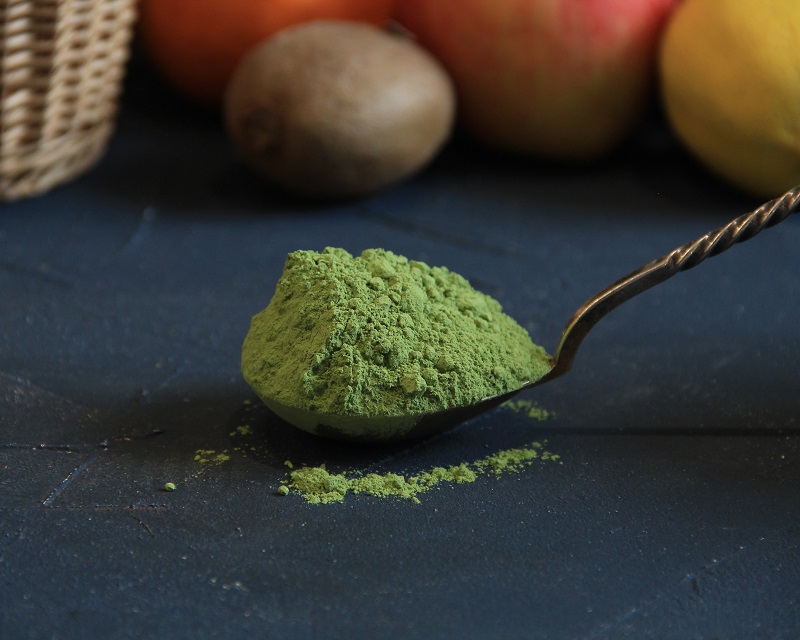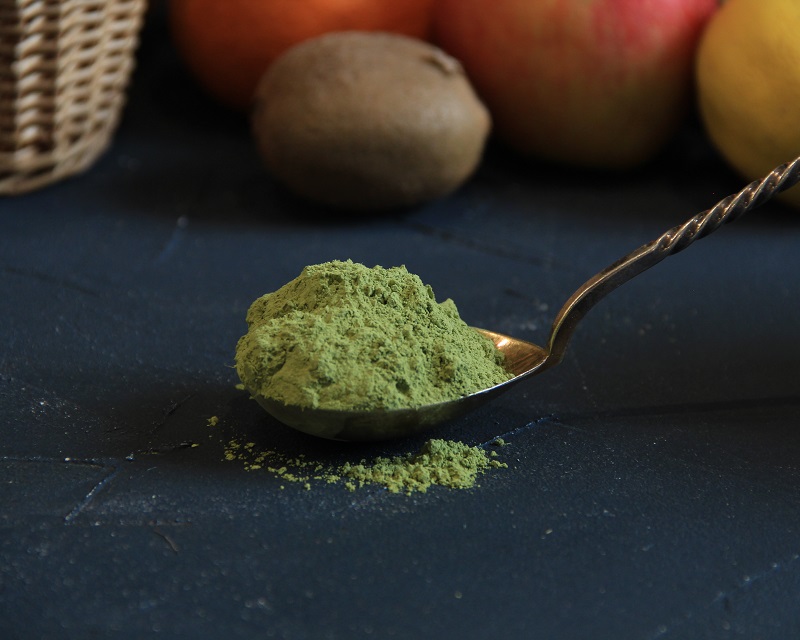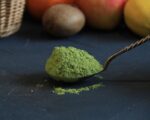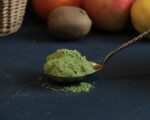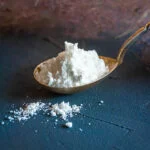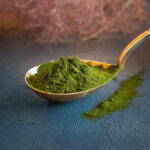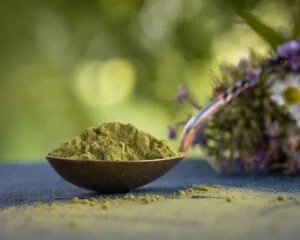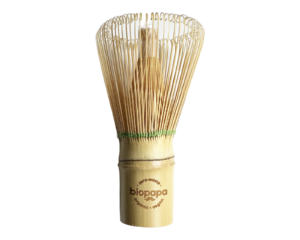Organic Ceremonial Matcha Tea from Japan
From 9.05€

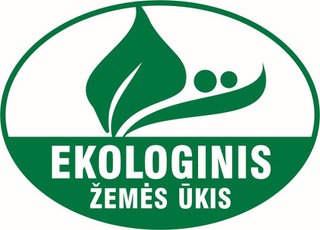
Japanese Ceremonial Matcha – A bright green tea powder that has been an integral part of Japanese culture for centuries. Its origins date back to the 12th century, where Zen Buddhist monks first introduced the art of growing and preparing matcha. Over time, the elaborate tea ceremony has evolved to become a profound symbol of harmony, respect and mindfulness in Japanese tradition.
Organic Ceremonial Matcha Tea from Japan is a premium quality green tea powder that has been used in the Japanese traditional tea ceremony for almost a millennium.
Our ceremonial matcha comes from the Kagoshima region of Japan, which is the largest organic tea producing region.
Ceremonial matcha is made from tea leaves grown in the shade, avoiding direct sunlight, thus stimulating the production of higher levels of chlorophyll for a richer green colour. After picking, the leaves are thoroughly steamed, dried and ground to form a fine, velvety powder called matcha. This is the type of ceremonial matcha that meets the EU’s organic standards.
Matcha Hisui has a very pleasant, aromatic and mild taste. That is why it can be consumed as a pure tea, as an energising drink or as part of the main tea ceremony.
Matcha is rich in antioxidants and it also has caffeine, but it is completely different from the caffeine in coffee.
Health benefits of Japanese Ceremonial Matcha
Antioxidants. Matcha is renowned for its high concentration of antioxidants, especially catechins such as EGCG (epigallocatechin gallate). These powerful antioxidants fight oxidative stress, protect cells from damage and support overall health.
Concentration and calm. Matcha contains the unique amino acid L-theanine, which promotes a relaxed state of alertness. This provides a balanced, long-lasting energy charge without the side effects often associated with coffee.
Boosting metabolism. The combination of caffeine and catechins in matcha can support a healthy metabolism and help with weight management.
Detoxification. Chlorophyll, which is abundant in matcha as a result of the shading process, helps to flush toxins from the body and maintain healthy liver function.
Immune system. Matcha is rich in nutrients, including vitamins (A, C, E), minerals (potassium, iron) and amino acids, which strengthen the immune system and increase resistance to infections.
Oral health. Matcha’s natural antibacterial properties can help fight oral bacteria and promote healthier teeth and gums.
Side effects
Although matcha is generally safe to consume in moderation, matcha is well tolerated and contains caffeine, which may cause sensitivity in some individuals. Excessive intake can cause irritability, sleep or digestive problems.
Pregnant or breastfeeding women and people sensitive to caffeine should be careful before including matcha in their diet.
Use and preparation of ceremonial matcha:
Japanese ceremonial matcha is traditionally prepared using a bamboo matcha whisk and a bowl, paying homage to the traditional tea ceremony.
Preparation: sift 1-2 teaspoons of matcha into a bowl, add 100 ml of hot water (about 80 °C) and whisk in a zigzag motion until an emerald-coloured foam forms. You can then add more water if you want your matcha to be less strong. You can add vegetable milk and sweeten to taste.
For best results, the whisk should be soaked in hot water before use.
Matcha is becoming increasingly popular as a culinary ingredient, and has recently been used in smoothies, lattes, desserts and savoury dishes, where it can have its own unique flavour and bright colour.
Japanese ceremonial matcha is a symbol of ancient wisdom and modern prosperity. In addition to its cultural significance, this emerald color elixir offers great health benefits and pleasant sensations. Whether you’re taking part in a traditional tea ceremony or enjoying Matcha’s culinary discoveries, incorporating this vibrant green powder into your daily routine promises a remarkable journey of sensations that it brings to body, mind and spirit.
Delicious!
Sources:
https://matcha.com
https://ujido.com
NOTE. The information contained herein should not be construed as a recommendation for treatment or other health issues. We encourage you to make personal decisions about your personal health, taking into account a wide range of sources of information.
Organic Matcha Green Tea (Ceremonial Grade) 100 % organic
Energy value 1320 kJ/ 315 kcal
Fat 2,5 g
- of which saturates 1,4 g
Carbohydrates 33 g
- of which sugar 6,7 g
Fiber 35 g
Protein 23 g
Salt 0 g
Vitamin A 2460 μg
Vitamin K 2300 μg
Vitamin C 298 mg
Riboflavin (B2) 0,1 mg
Folic acid (B9) 260 μg
Potassium 1190 mg
Iron 7,0 mg
Store in a cool, dry place.
